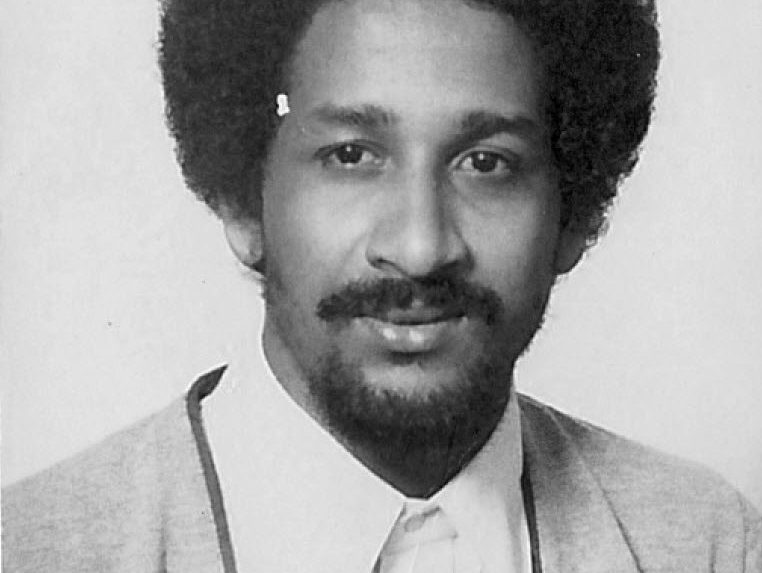(Jamaica Gleaner) Jamaicans in Toronto have welcomed the Court of Appeal for Ontario’s decision last week to uphold the first-degree murder conviction of a Jamaican man in the death of his daughter, whose body was found in a burning suitcase.
Everton Biddersingh and his wife, Elaine, were convicted in the death of 17-year-old Melonie Biddersingh, who went to Canada with her two brothers from Jamaica in 1991 to join the couple and their three children.
On September 1, 1994, the York Regional Police found a body in a burning suitcase by the side of Highway 7. The body remained unidentified for 18 years.
In 2012, after receiving a tip about the murder of a teenage girl, the police were able to identify the body through DNA.
They arrested Everton and Elaine on March 5, 2012, as well as Everton’s son, Cleon.

Cleon was charged with aggravated assault, forcible confinement, criminal negligence causing bodily harm, and causing an indignity to a human body. However, his charges were later stayed.
Everton and Elaine were each charged with first-degree murder and tried separately. Elaine was acquitted of first-degree murder, but found guilty of second-degree murder and sentenced to life imprisonment with a period of parole ineligibility of 16 years. Everton was convicted of first-degree murder.
Everton challenged his conviction on several grounds related to evidence regarding what caused Melonie’s death.
Elaine Biddersingh’s appeal of her conviction is ongoing.
MOM SENT KIDS TO DAD IN HOPE OF BETTER LIFE
Veteran journalist and Toronto Star columnist Royson James, who visited Melonie’s mother, Opal Austin, in Jamaica, and covered the case, said her family would be pleased to hear that the court dismissed Biddersingh’s appeal.
He said, when they heard that Everton was seeking to appeal the verdict, they were quite distressed.
“They were flabbergasted. They couldn’t understand – after going through all that for so long, for so many years, and then finally, in their eyes, getting some justice – that the court would then turn around and then give Mr Biddersingh another shot and another chance,” James said
They asked him several times for an explanation and he told them that, in the legal system, an individual has a right to ask for an appeal.

James said that, from talking to Austin, it seems that she still has not recovered from the tragedy and has “all sorts of effects”, including not being able to sleep well.
“This is a mother who saw some light into the darkness in which she found herself with seven kids and figured that here’s a chance for two of the kids to go to Canada and make better of themselves and then maybe come back and help the family. And the whole thing just blew up in her face; she lost the two youngest children,” James said.
One of Melonie’s brothers who had also migrated with her, Dwayne, died earlier in what the police said was a suicide, but the family has never accepted that story.
Everton had said that Melonie ran away from home to New York and Austin would give anyone travelling abroad a picture and a note to try to find her daughter.
Austin found out several years later that Melonie met a horrible death and – according to the courts – at the hands of her father.
OFFICIALS: IT SHOULDN’T HAVE HAPPENED
Michael Thompson, a deputy mayor of Toronto, initiated a meeting of stakeholders from different levels of government, to put in place a mechanism that allowed them to know that children are coming into Canada and to ensure that they are aware of their whereabouts.
“There is a wider lens now that is basically looking at young people coming in through the border services, coming to be with their, whether or not it’s adopted or natural, family from places around the world,” he said.
Thompson welcomes the dismissal of the appeal, noting that, “It’s no comfort, in the sense of bringing Melonie or Dwayne back, but it is, in as much justice that we can administer, this is part of that.”
Audrey Campbell, a former president of the Jamaican Canadian Association, said the Court of Appeal did the right thing when it upheld the conviction.
“When I saw the article that the Court of Appeal upheld the conviction, two things I thought: number one – the nerve, the inability of this man to accept responsibility for what he did to a helpless child is just to me egregious behaviour,” said Campbell. “And secondly, I thought, in terms of the system, is this still happening? Are kids still slipping below the radar?”
Thompson had asked Campbell to participate in the initiative to put systems and policies in place regarding kids entering Canada into blended families.
Campbell thinks it is incumbent on the government of the country that a child is leaving to arm minors with information about how to contact authorities in the event that something goes wrong.
“It could be just a little card that says, ‘Here’s your package. When you come up to Canada, if you have any concerns, this is the number you call’, and then when they land in this country, they should be noted in immigration, the school system should be alerted that this child should be registering this fall or whenever, so that it does not happen again. It doesn’t seem that difficult to me, and you can’t tell me that it’s an infringement on people’s rights; you’re talking about children’s lives,” Campbell said.
MELONIE STARVED, TREATED ‘LIKE A SLAVE’
Everton Biddersingh immigrated to Canada from Jamaica in 1979. Shortly after arriving, he married Elaine and they moved to an apartment in Toronto. Between 1985 and 1991, they had three children together, O’Neil, Kenroy, and Charmaine.
In 1991, Everton and Elaine were joined in Toronto by Cleon, Melonie, and Dwayne Biddersingh, Everton’s children from a previous relationship. Melonie and her siblings were born and raised in Jamaica. Melonie was 13 years old at the time of her arrival. Her older brother, Cleon, was 16, and her younger brother, Dwayne, was 12. All three lived with their father and stepmother in their Toronto apartment. Unfortunately, in June 1992, Dwayne passed away.
During the trials for Everton and Elaine, several witnesses, including Melonie’s older brother, Cleon, testified about Melonie’s life with her father and stepmother in Toronto.
“By all accounts, Melonie was neglected and badly abused … . The parties agree that Everton and Elaine both failed to provide the necessaries of life for Melonie. Melonie was starved, prohibited from going to school, confined to the apartment where they lived, and forced to work, in the words of her brother, ‘like a slave’,” wrote the judges in their decision to dismiss the appeal.

